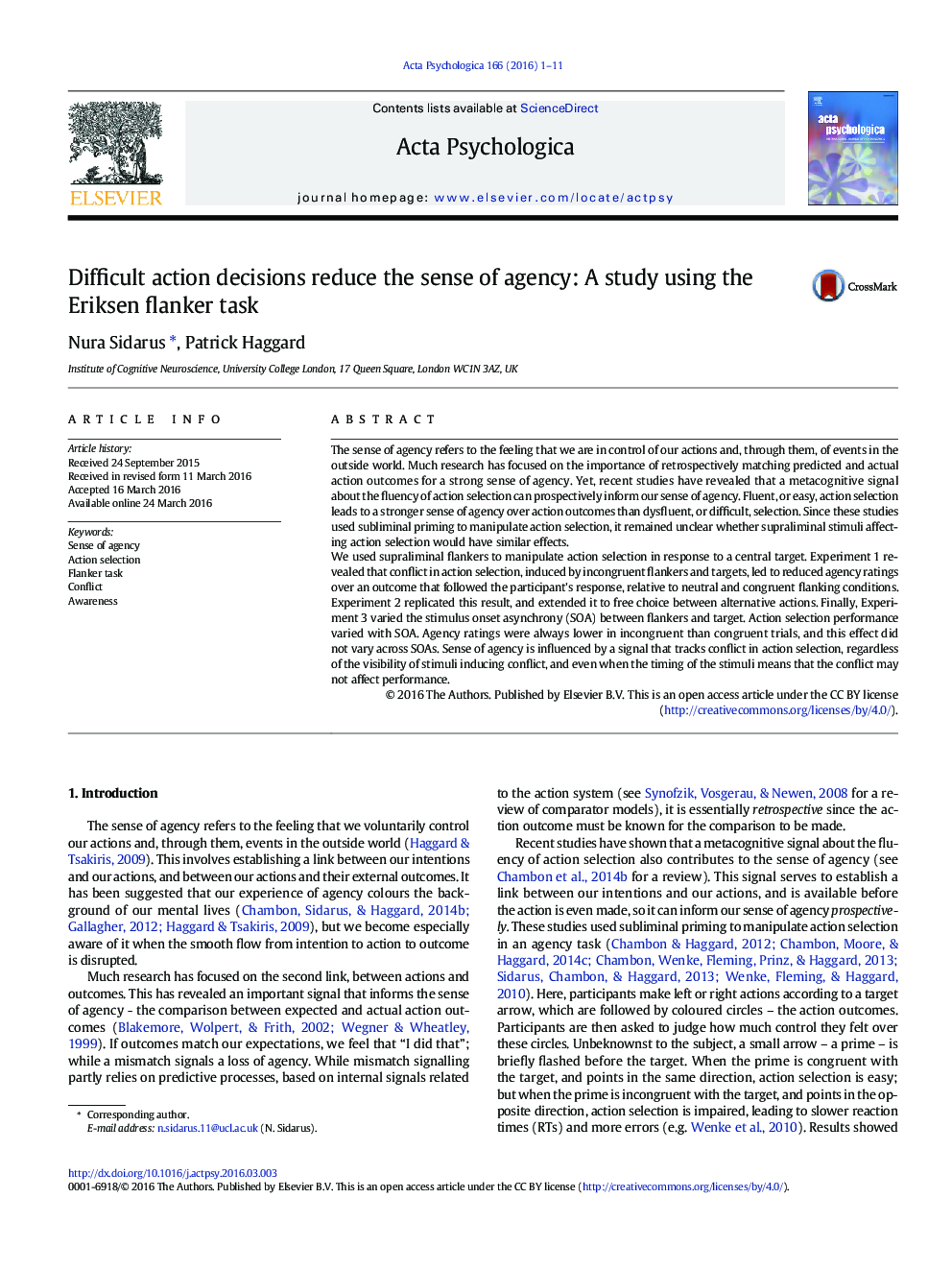| Article ID | Journal | Published Year | Pages | File Type |
|---|---|---|---|---|
| 7277077 | Acta Psychologica | 2016 | 11 Pages |
Abstract
We used supraliminal flankers to manipulate action selection in response to a central target. Experiment 1 revealed that conflict in action selection, induced by incongruent flankers and targets, led to reduced agency ratings over an outcome that followed the participant's response, relative to neutral and congruent flanking conditions. Experiment 2 replicated this result, and extended it to free choice between alternative actions. Finally, Experiment 3 varied the stimulus onset asynchrony (SOA) between flankers and target. Action selection performance varied with SOA. Agency ratings were always lower in incongruent than congruent trials, and this effect did not vary across SOAs. Sense of agency is influenced by a signal that tracks conflict in action selection, regardless of the visibility of stimuli inducing conflict, and even when the timing of the stimuli means that the conflict may not affect performance.
Related Topics
Life Sciences
Neuroscience
Cognitive Neuroscience
Authors
Nura Sidarus, Patrick Haggard,
